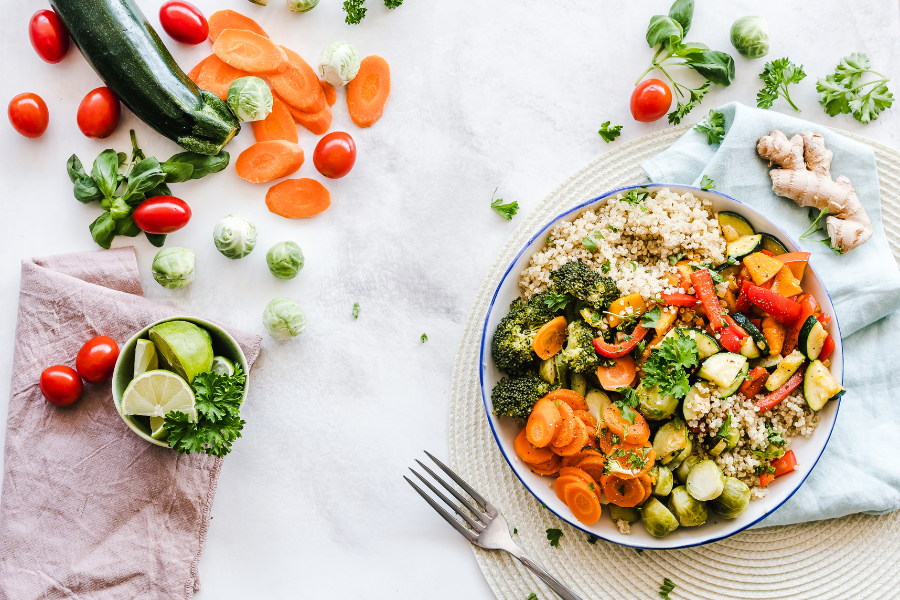In today’s health-conscious world, many people are looking for ways to improve their diets and reduce their intake of unhealthy fats. One of the most common sources of unhealthy fats in our diet is oil, often used in cooking and baking.
While oils can add flavor and texture to foods, they are also high in calories and can contribute to various health issues when consumed in excess. Fortunately, there are several healthier alternatives to oils that can help you maintain a nutritious and balanced diet.
Our article will guide you through different ways to replace oils in your meals, providing you with practical tips and delicious substitutes to enhance your cooking and baking.
The Problem with Oils
High Caloric Content
Oils are highly concentrated sources of calories. Just one tablespoon of oil contains around 120 calories. When used excessively, this can quickly add up and contribute to weight gain.
Unhealthy Fats
Many commonly used oils, such as vegetable and canola oil, contain high levels of unhealthy fats like trans fats and saturated fats. These fats can increase the risk of heart disease, high cholesterol, and other health issues.
Processed and Refined
Most oils available in supermarkets are heavily processed and refined, stripping away essential nutrients and beneficial compounds. This process can also create harmful byproducts that negatively impact health.
Healthier Cooking Alternatives

1. Applesauce
Applesauce is a fantastic substitute for oil in baking. It adds moisture and sweetness without the added fat and calories. When using applesauce as a replacement, use a 1:1 ratio. For example, if a recipe calls for one cup of oil, use one cup of applesauce instead.
2. Greek Yogurt
Greek yogurt is another excellent alternative for oil in baking and cooking. It provides a creamy texture and adds protein to your dishes. Replace oil with Greek yogurt at a 1:1 ratio. This swap works particularly well in muffins, cakes, and bread.
3. Mashed Avocado
Mashed avocado is rich in healthy fats and can be used as a substitute for oil in both baking and cooking. It adds a creamy texture and a mild flavor. Use a 1:1 ratio when substituting mashed avocado for oil. This is a great option for brownies, cookies, and even salad dressings.
4. Banana Puree
Banana puree is a popular substitute for oil in baking, especially in recipes that call for a sweet and moist texture. Use mashed bananas in a 1:1 ratio to replace oil. This substitute works well in cakes, muffins, and pancakes.
5. Coconut Milk
Coconut milk is a versatile ingredient that can replace oil in cooking, baking, and even frying. It adds a rich, creamy texture and a subtle coconut flavor. Use a 1:1 ratio when substituting coconut milk for oil.
Using Broth and Water in Cooking
Sautéing and Stir-Frying
Instead of using oil for sautéing and stir-frying, try using vegetable broth or water. These alternatives help to reduce calories and unhealthy fats while keeping your dishes flavorful and moist. Use a small amount of broth or water to prevent sticking and add more as needed during cooking.
Roasting and Grilling
When roasting or grilling vegetables, meat, or fish, you can replace oil with a mixture of broth and your favorite herbs and spices. This method not only cuts down on unhealthy fats but also infuses your food with delicious flavors.
Healthy Fats for Salad Dressings

1. Avocado
Avocado is a nutrient-dense fruit that is rich in healthy fats, vitamins, and minerals. You can use mashed avocado as a base for creamy salad dressings. Blend it with lemon juice, garlic, and herbs for a delicious and healthy dressing.
2. Nut Butters
Nut butters, such as almond or cashew butter, are excellent alternatives to oil in salad dressings. They add a rich, nutty flavor and are packed with healthy fats and protein. Mix nut butter with vinegar, mustard, and honey for a tasty and nutritious dressing.
3. Tahini
Tahini, a paste made from sesame seeds, is a great substitute for oil in salad dressings. It adds a creamy texture and a unique flavor. Combine tahini with lemon juice, garlic, and water for a healthy and delicious dressing.
Baking with Nut and Seed Butters
Peanut Butter
Peanut butter is a versatile ingredient that can replace oil in many baking recipes. It adds a rich flavor and healthy fats. Use a 1:1 ratio when substituting peanut butter for oil. This works well in cookies, brownies, and energy bars.
Almond Butter
Almond butter is another great alternative for oil in baking. It has a slightly sweet flavor and is packed with nutrients. Replace oil with almond butter at a 1:1 ratio. This substitute is perfect for cakes, muffins, and bread.
Sunflower Seed Butter
Sunflower seed butter is an excellent option for those with nut allergies. It provides a similar texture and flavor to nut butters and is rich in healthy fats and protein. Use it in a 1:1 ratio to replace oil in baking recipes.
Cooking with Fruits and Vegetables
Zucchini
Zucchini is a versatile vegetable that can be used as a substitute for oil in baking. It adds moisture and a subtle flavor without the added fat. Use grated zucchini in a 1:1 ratio to replace oil. This works well in cakes, muffins, and bread.
Pumpkin Puree
Pumpkin puree is a popular substitute for oil in baking, especially in fall-inspired recipes. It adds moisture, flavor, and nutrients. Replace oil with pumpkin puree at a 1:1 ratio. This substitute works well in cakes, muffins, and cookies.
Sweet Potato
Sweet potato is a nutrient-dense vegetable that can replace oil in baking. It adds moisture, sweetness, and a rich flavor. Use mashed sweet potato in a 1:1 ratio to replace oil. This works well in cakes, muffins, and bread.
Dairy and Dairy-Free Alternatives
Buttermilk
Buttermilk is a tangy, low-fat alternative to oil in baking. It adds moisture and a subtle flavor. Replace oil with buttermilk at a 1:1 ratio. This substitute works well in cakes, muffins, and pancakes.
Unsweetened Applesauce
Unsweetened applesauce is a popular substitute for oil in baking. It adds moisture and sweetness without the added fat and calories. Use unsweetened applesauce in a 1:1 ratio to replace oil. This works well in cakes, muffins, and bread.
Silken Tofu
Silken tofu is a great dairy-free alternative to oil in baking. It adds moisture, protein, and a creamy texture. Blend silken tofu until smooth and use it in a 1:1 ratio to replace oil. This substitute works well in cakes, muffins, and brownies.
Tips for Transitioning to Oil-Free Cooking

Start Slowly
Transitioning to oil-free cooking can be challenging at first. Start by replacing oil in one or two recipes each week and gradually increase as you become more comfortable with the substitutes.
Experiment with Flavors
Oil-free cooking allows you to experiment with different flavors and ingredients. Try using herbs, spices, and other flavorings to enhance your dishes.
Keep It Simple
Don’t over complicate your meals. Simple, whole-food ingredients can be just as delicious and satisfying as oil-laden dishes.
Focus on Nutrition
Replacing oil in your diet can help you focus on more nutrient-dense foods. Aim to include a variety of fruits, vegetables, whole grains, and lean proteins in your meals.
Final Thoughts
Replacing oils in your diet with healthier alternatives is a great way to improve your overall health and reduce your intake of unhealthy fats. Whether you’re baking, cooking, or preparing salad dressings, there are numerous substitutes available that can provide the same moisture, texture, and flavor without the added calories and unhealthy fats. By making small changes and experimenting with different ingredients, you can create delicious, nutritious meals that support a healthy lifestyle.
Transitioning to an oil-free or reduced-oil diet doesn’t mean sacrificing flavor or enjoyment in your meals. With a little creativity and knowledge, you can discover a whole new world of cooking and baking that is both satisfying and beneficial for your health. So, next time you’re in the kitchen, consider these alternatives and take a step towards a healthier, happier you.



